Shipping to the Saudi Arabia
Shipping to the Saudi Arabia
Smooth, Cost-Effective, and Global Ocean Freight to/from the Saudi Arabia
At DFreight, we provide a wide range of business sea freight services for a variety of commodities, including foods, fruits, electronics, cosmetics, and furniture; offering transparent, effective, and reliable door-to-door cargo to Saudi Arabia from the UAE and vice versa. You can conduct business without being concerned about the challenges of shipping from the UAE to Saudi Arabia using our all-in-one digital freight solutions.
Our digital freight forwarding platform provides real-time monitoring of shipments, ensuring that you have complete visibility and control over your cargo. We offer end-to-end services tailored to your unique requirements, making shipping to and from Saudi Arabia a hassle-free experience. We help you ship business cargo to various cities in Saudi Arabia, including Riyadh, Al Madinah Al Munawwarah, Jeddah, Mecca, etc. in the easiest, fastest, and safest way possible.
You can rely on DFreight to assist you with all of your international cargo shipping to Saudi Arabia thanks to our FCL and LCL shipment ocean freight cargo services. With the help of our digital freight platform, you may submit your inquiry right away and receive the best competitive prices for shipping your cargo to Saudi Arabia.
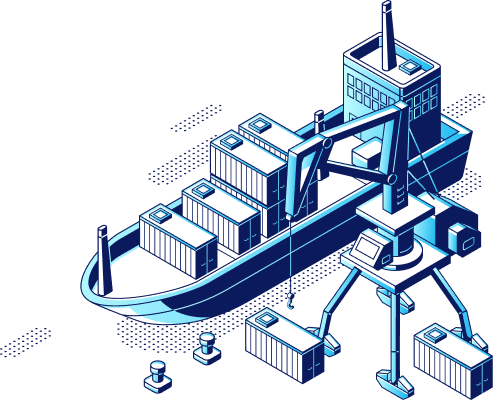
Saudi Arabia Exports and
Imports
The top exports of Saudi Arabia are Crude Petroleum, Refined Petroleum, Ethylene Polymers, Propylene Polymers, and Acyclic Alcohols, exporting mostly to China, India, Japan, South Korea, and United Arab Emirates.
The top imports of Saudi Arabia are Cars, Broadcasting Equipment, Refined Petroleum, Packaged Medicaments, and Telephones, importing mostly from China, United Arab Emirates, United States, Germany, and India.
Market Update
According to OEC, in 2020, Saudi Arabia was the number 20 economy in the world in terms of GDP, the number 30 in total exports, the number 30 in total imports, the number 53 economy in terms of GDP per capita and the number 32 most complex economy according to the Economic Complexity Index.
Saudi Arabia exported US$7.38 Billion during 2021 to the United Arab Emirates and imported US$26.56 Billion during 2021 from the UAE, according to the Trading Economics database.
The freight market in Saudi Arabia and the United Arab Emirates is expected to grow rapidly in the coming years and by 2023 is projected to become one of the world’s largest regional freight markets. With the anticipated increase in air and sea freight, the market is expected to witness growth in both land and air freight services.
Banned Products
There are a number of products that are banned from being imported into Saudi Arabia. These include:
- Alcoholic beverages
- Pork and pork products
- Narcotics and psychotropic substances
- Pornographic materials
- Gambling–related items
- Israeli–origin items
- Firearm and related ammunition
- Religious books, items and material considered offensive to Islam
- Blasphemous material
- Items and material that are contrary to the rules, regulations and policies of the Kingdom


Documents & Customs Clearance
One thing to take into account when exporting cargo internationally is customs clearance. You must be aware of the customs clearance regulations of the destination countries when shipping cargo from Saudi Arabia.
The following documentation must be given to local customs for international shipments by the supplier, consignee, or intermediary:
– A commercial invoice
– A packing list
– A bill of lading
– A certificate of origin
Shipping Different Commodities from/to Netherland
How to Ship Toys From China
How to Ship Dairy Products
Shipping Tires Worldwide: Everything You Need to Know
Major Sea Ports
It is crucial for Jeddah to continue existing as Saudi Arabia’s business center since its port links the East with the West. The second-largest city in Saudi Arabia is Jeddah, and it is also home to the second-largest and one of the busiest ports in the Arab world.
As the greatest exporter of oil in the world, Saudi Arabia can store and export its most valuable resource through this port. Additionally, it manages roughly 65% of the nation’s imports of goods. It serves as the nation’s main Red Sea port.
The Islamic Port of Jeddah has huge warehouses for cargo retention, a shipbuilding and repair yard, and 62 berths, all of which are equipped with cutting-edge technology. The berths can accommodate a wide range of goods, including animals, passengers, bulk grain, containers, and general freight. The port’s total capacity is 130 million tons, divided among its five terminals. The port has around 1700 modern cargo handling equipment.
This port, commonly referred to as Dammam port, is the largest in the Persian Gulf. It also asserts to be the second busiest port in both North Africa and the Middle East. It is only surpassed in terms of operations and capacity by the Islamic Port of Jeddah.
This is the nation’s main port in the Persian Gulf, and it manages a sizable amount of the export services for the oil industry. This port offers a refrigerated cargo terminal, two general cargo terminals, shared container, bulk grain, and first and second container terminals.
This port handles all of Jubail’s commercial cargo, including general, containerized, and bulk goods. This port provides an alternative entry to Saudi Arabia’s regional and worldwide markets, with a capacity of 1 million TEUs per year. Its primary focus is on providing to the business demands of Jubail Industrial City, which also provides access to Riyadh. It’s also only 80 kilometers north of Dammam, the country’s second-largest commercial city.
The general cargo and bulk cargo terminals are equipped with outstanding machineries, such as various grain discharging machines that can discharge 50 to 400 tons per hour, depending on which machine is used. The container terminal at Jubail Commercial Port is similarly well-equipped, with a total berth capacity of 36 million tons.
The port has three main terminals: a container terminal with four berths, a general terminal with eight berths, and a bulk terminal with four berths.
-
Italy
Germany
United Kingdom
Netherlands
France
Turkey
Spain
Denmark
Switzerland
Czech Republic
Hungary
Poland
Romania
Greece
Portugal
Slovakia
Sweden
Ireland
-
China
India
Taiwan
Hong Kong
Japan
Singapore
South Korea
Malaysia
Qatar
Indonesia
Saudi Arabia
Thailand
Bangladesh
Lebanon
Kuwait
-
Uganda
Congo
Egypt
Rwanda
Kenya
South Africa
Morocco
Algeria
-
-
-


We consolidate cargo from Germany, Belgium, France, Luxembourg, and nearby cities to Amsterdam, then ship it directly to Dubai.
Certificates & Memberships
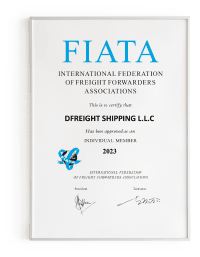
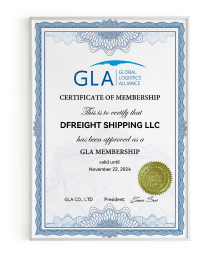
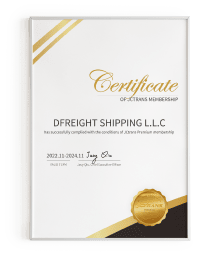
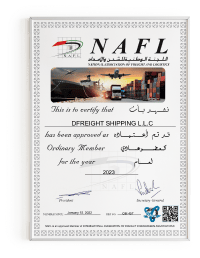
- Stress-Free Documentation We simplify the paperwork process, making it easy for you to focus on what matters most – your shipment.
- Clear Cost Breakdown Our pricing is straightforward, with a detailed breakdown so you can see exactly where your money goes.
- Dedicated Support We’re just a click away. Your dedicated support team is there to address any questions or concerns promptly.
- Live Shipment Tracking Easily follow your ocean and air freight shipments 24/7 with real-time tracking. No more unexpected delays.
Ship Your Cargo with Ease
Get Started Today!
Why Choose Consolidated Air Freight?
Guaranteed Space
Secure your cargo space without worries.
Reliable Scheduling
Count on our reliable predictive schedules
Nationwide Collections
We pick up your cargo throughout Benelux and Germany
Regional Trucking
Benefit from local trucking within Europe and GCC
Competitive Pricing
Enjoy market-competitive air freight rates
Fast Delivery
Rapid and secure shipping for time-sensitive items
Regional Trucking
Benefit from local trucking within Europe and GCC
Competitive Pricing
Enjoy market-competitive air freight rates
Fast Delivery
Rapid and secure shipping for time-sensitive items
Guaranteed Space
Secure your cargo space without worries.
Reliable Scheduling
Count on our reliable predictive schedules
Nationwide Collections
We pick up your cargo throughout Benelux and Germany
Any Questions?
Reach out to us, and our experts will work with you to discover the tailored solution you need.





 Germany
Germany Netherlands
Netherlands Luxemburg
Luxemburg Belgium
Belgium





